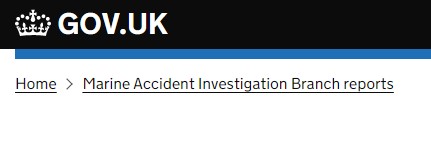Safety Alert: Fumigant poisoning on general cargo vessel with 1 person injured
A stevedore became sick after handling cans containing fumigant while discharging cargo from a general cargo vessel. The stevedore experienced nausea, loss of balance, and nerve damage to his hand; he had an extended absence from work while recuperating.
The cargo of bagged sweet potato had been loaded at the port of origin in July 2021. During and after loading, cans and pouches of aluminium phosphide fumigant had been placed between the bags of cargo. The vessel sailed on 19 July. Discharge operations at the destination port began on 10 October. The operation was stopped following the discovery of open cans containing powder. The crew then removed some of the fumigant from the cargo holds. A specialist contractor subsequently brought in removed 150kg of fumigant from the cargo holds.
The stevedore became ill in the early hours of the next morning.
- The fumigant was provided to the ship by one of the cargo suppliers, but it was likely that specialist fumigators were not allowed to board and deploy the fumigant due to the COVID-19 restrictions that were in force.
- The crew were not trained to deploy or remove the fumigant and the personal protective equipment they were wearing was inadequate for the task.
- The ship’s officers did not adhere to the company’s safety management system (SMS) or international guidelines on the use of fumigants. Consequently, the fumigant was incorrectly deployed and did not fully volatilise and disperse during the voyage to the destination port.
- The use of the fumigant in the cargo holds was neither documented on board, nor communicated to the destination port by the master, voyage charterer, or ship management company before the vessel’s arrival. Thus, the port was unaware of the presence of fumigant on board so did not initiate its fumigant removal protocols before clearing the vessel to start discharging cargo.
- The risk presented by the cans of fumigant was underestimated when they were first found, which delayed the cessation of cargo discharge, and the emergency response procedure was not strictly followed.
- The stevedore ingested fumigant either while working cargo or while eating and smoking after leaving the vessel.
Please click here for details
We are grateful to the UK Marine Accident Investigation Branch for providing details. We acknowledge their commitment to sharing learning to benefit others. If you have similar operations, please share this information with managers, operatives and any potentially affected third parties as appropriate. Please also review any of your relevant operations for similar hazardous conditions, risks, and controls.
Learning content like this is highly valuable as it is based on real-world experience. We encourage everyone with publishable information about incidents to send it to us, so that we can raise awareness across the whole industry. Please contact us at secretariat@ichca.com; sharing your insight could save a life or prevent injury.

